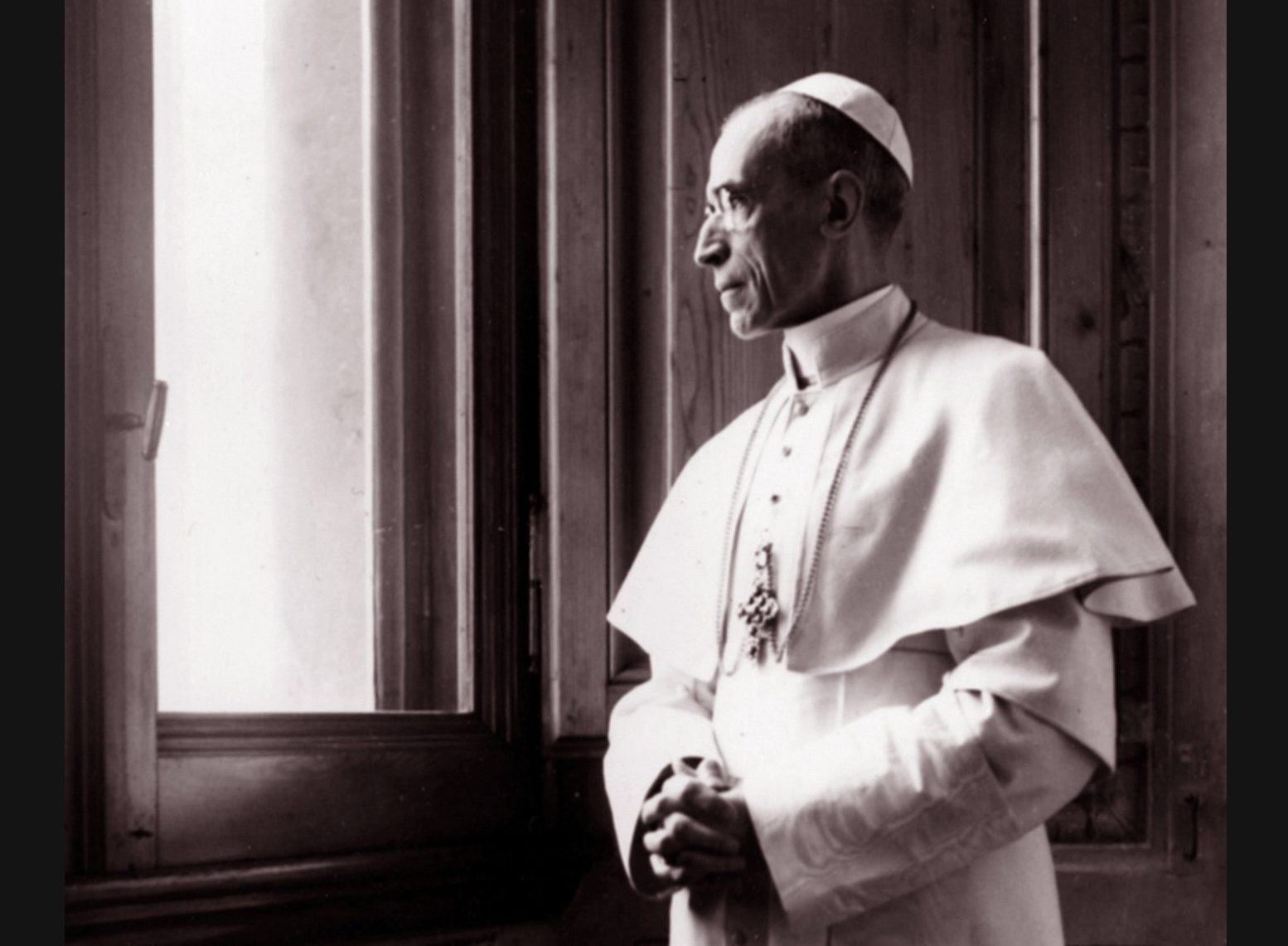 Pope Pius XII Photo courtesy of PerlePress Productions
Pope Pius XII Photo courtesy of PerlePress Productions Could the Catholic Church have done more to save Jews during the Holocaust? The documentary ‘Holy Silence’ provides some answers, revealing the Vatican’s actions and inactions leading up to and during World War II. The film will be shown free of charge online from Aug. 15-22, sponsored by the Jewish Film Institute and the United States Holocaust Memorial Museum.
“I had not really anticipated making another Holocaust-related film after finishing my earlier film, ‘50 Children: The Rescue Mission of Mr. and Mrs. Kraus,’” producer-director Steven Pressman told the Journal. “At the time, I was thinking, okay I’ve been immersed in this very dark, horrible period of history for a while now, so maybe it’s time to move on to something else. But I had also been hearing a little bit about the Vatican and the Holocaust from some folks who work at the U.S. Holocaust Memorial Museum in Washington, whom I had gotten to know while making ‘50 Children.’ In particular, they had been involved for some time in various efforts to gain access to Vatican archives, and I found myself getting a little more drawn into some of the longstanding issues and controversy surrounding the Vatican’s response to the rise of Adolf Hitler and his pursuit of the Final Solution. Ultimately, I decided there was still a pretty dramatic story to tell about this part of history all these decades later.”
To broaden the story, Pressman focused a lot of his research on American figures who tried to influence the Vatican’s response to Nazi policies toward Jews as Hitler role to power. He also traveled to Rome and the Vatican twice, interviewing historians and scholars for their insights.

“I was determined from the very outset of this project NOT to make a film that could be easily dismissed as some kind of ad hominem attack on the Vatican and the Catholic Church,” Pressman said. “The film, to be sure, definitely has a point of view, and for the most part casts a pretty critical eye particularly when it comes to the silence of Pius XII. On the other hand, a lot of the film also focuses on the much lesser known figure of his predecessor, Pius XI, who was on the verge of issuing a papal encyclical that would have strongly denounced Hitler and anti-Semitism. “I’m hoping that people who see this film—including those who have already made up their mind about Pius XII—realize that there were others in the Catholic Church who were wily ling to stand up to Hitler. Sadly, those efforts never really came to fruition.”
The story has particular resonance today, Pressman believes. “This issue of silence in the face of evil, and the obligations that we all have to speak up against evil—that’s something that still confronts us just as it confronted those who were called upon to speak out against Nazism, Fascism and anti-Semitism in the 1930s and 1940s,” he said. “Pius XII, for his part, insisted that silence was the better path and that speaking out would have endangered even more Jewish lives. I think that has proven to be a very difficult argument to sustain, whether we’re talking about the world as it existed 80 years ago or so many of the social injustice issues that exist today.”
Pressman had begun showing “Holy Silence” on the festival circuit when the COVID-19 pandemic hit and the film world went virtual. Future release plans are in flux, but will include a PBS broadcast beginning in November. Meanwhile, he’s in production on a documentary about the Jewish family that owned and preserved Monticello, Thomas Jefferson’s home near Charlottesville, Va.
Pressman ends “Holy Silence” with a quote from Elie Wiesel: “Neutrality helps the oppressor, never the victim. Silence encourages the tormentor, never the tormented.”
“I want viewers to come away from this film thinking about the moral costs of remaining silent when everything around them otherwise demands strong words and actions,” he said.
Click here to register and watch the film.






















 More news and opinions than at a Shabbat dinner, right in your inbox.
More news and opinions than at a Shabbat dinner, right in your inbox.